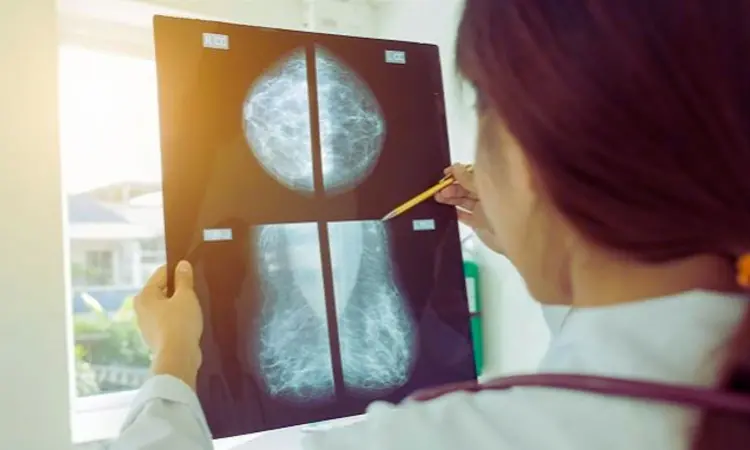- Home
- Medical news & Guidelines
- Anesthesiology
- Cardiology and CTVS
- Critical Care
- Dentistry
- Dermatology
- Diabetes and Endocrinology
- ENT
- Gastroenterology
- Medicine
- Nephrology
- Neurology
- Obstretics-Gynaecology
- Oncology
- Ophthalmology
- Orthopaedics
- Pediatrics-Neonatology
- Psychiatry
- Pulmonology
- Radiology
- Surgery
- Urology
- Laboratory Medicine
- Diet
- Nursing
- Paramedical
- Physiotherapy
- Health news
- Fact Check
- Bone Health Fact Check
- Brain Health Fact Check
- Cancer Related Fact Check
- Child Care Fact Check
- Dental and oral health fact check
- Diabetes and metabolic health fact check
- Diet and Nutrition Fact Check
- Eye and ENT Care Fact Check
- Fitness fact check
- Gut health fact check
- Heart health fact check
- Kidney health fact check
- Medical education fact check
- Men's health fact check
- Respiratory fact check
- Skin and hair care fact check
- Vaccine and Immunization fact check
- Women's health fact check
- AYUSH
- State News
- Andaman and Nicobar Islands
- Andhra Pradesh
- Arunachal Pradesh
- Assam
- Bihar
- Chandigarh
- Chattisgarh
- Dadra and Nagar Haveli
- Daman and Diu
- Delhi
- Goa
- Gujarat
- Haryana
- Himachal Pradesh
- Jammu & Kashmir
- Jharkhand
- Karnataka
- Kerala
- Ladakh
- Lakshadweep
- Madhya Pradesh
- Maharashtra
- Manipur
- Meghalaya
- Mizoram
- Nagaland
- Odisha
- Puducherry
- Punjab
- Rajasthan
- Sikkim
- Tamil Nadu
- Telangana
- Tripura
- Uttar Pradesh
- Uttrakhand
- West Bengal
- Medical Education
- Industry
Axillary lymph node dissection effective for breast cancer with sentinel-node macrometastases: Study

A recent clinical trial determined that omitting the routine procedure of completion axillary-lymph-node dissection (ALND) does not compromise the survival rates of patients with certain types of breast cancer by potentially setting the stage for less invasive treatment options. The findings were published in The New England Journal of Medicine.
The study included 2,766 participants across five countries from January 2015 to December 2021 and looked at patients with clinically node-negative primary T1 to T3 breast cancers where the patients had either one or two sentinel-node macrometastases. These patients would undergo ALND, where additional lymph nodes are surgically removed after the sentinel lymph node is found to contain cancer.
The participants were randomly assigned to either proceed with the standard ALND or to undergo only a sentinel-node biopsy (SNB) where only the first few lymph nodes into which a tumor drains are removed and examined. The primary goal was to compare overall survival rates while the secondary outcomes focused on the recurrence-free survival
The omission of ALND did not show inferior results when compared to the traditional approach. In fact, the 5-year recurrence-free survival rates were impressive with 89.7% in the SNB-only group and 88.7% in the dissection group. The hazard ratio was 0.89 (95% CI, 0.66 to 1.19) which was significantly under the preset threshold.
Also, the vast majority of patients in both groups received radiation therapy that included nodal target volumes, with 89.9% in the SNB-only group and 88.4% in the group undergoing dissection. This consistency in post-operative treatment underscores the rigorous standards maintained across the study.
These findings are pivotal as they suggest that for certain patients with node-negative breast cancer, the less invasive procedure of sentinel-node biopsy alone could be just as effective as more extensive surgery to prevent cancer recurrence. This could directly translate to fewer surgical complications, quicker recovery times and potentially lower healthcare costs. Overall, the significant changes in the surgical management of breast cancer offers many patients a less invasive option without compromising their long-term health outcomes.
Reference:
de Boniface, J., Filtenborg Tvedskov, T., Rydén, L., Szulkin, R., Reimer, T., Kühn, T., Kontos, M., Gentilini, O. D., Olofsson Bagge, R., Sund, M., Lundstedt, D., Appelgren, M., Ahlgren, J., Norenstedt, S., Celebioglu, F., Sackey, H., Scheel Andersen, I., Hoyer, U., Nyman, P. F., … Christiansen, P. (2024). Omitting Axillary Dissection in Breast Cancer with Sentinel-Node Metastases. In New England Journal of Medicine (Vol. 390, Issue 13, pp. 1163–1175). Massachusetts Medical Society. https://doi.org/10.1056/nejmoa2313487
Neuroscience Masters graduate
Jacinthlyn Sylvia, a Neuroscience Master's graduate from Chennai has worked extensively in deciphering the neurobiology of cognition and motor control in aging. She also has spread-out exposure to Neurosurgery from her Bachelor’s. She is currently involved in active Neuro-Oncology research. She is an upcoming neuroscientist with a fiery passion for writing. Her news cover at Medical Dialogues feature recent discoveries and updates from the healthcare and biomedical research fields. She can be reached at editorial@medicaldialogues.in
Dr Kamal Kant Kohli-MBBS, DTCD- a chest specialist with more than 30 years of practice and a flair for writing clinical articles, Dr Kamal Kant Kohli joined Medical Dialogues as a Chief Editor of Medical News. Besides writing articles, as an editor, he proofreads and verifies all the medical content published on Medical Dialogues including those coming from journals, studies,medical conferences,guidelines etc. Email: drkohli@medicaldialogues.in. Contact no. 011-43720751


